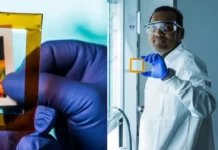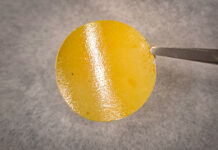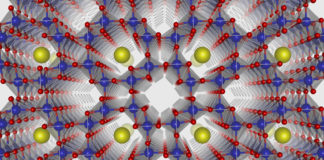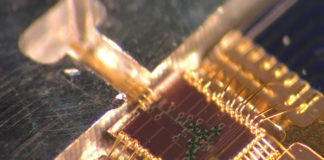Tag: silicon
Graphene tunnelling junctions: beyond the breaking point
Molecular electronics is a burgeoning field of research that aims to integrate single molecules as active elements in electronic devices. Obtaining a complete picture...
Greater than the sum of its parts
When it comes to designing and optimizing mechanical systems, scientists understand the physical laws surrounding them well enough to create computer models that can...
Graphene helps protect photocathodes for physics experiments
Transforming light into electricity is no mean feat. Some devices, like solar cells, use a closed circuit to generate an electric current from incoming...
Ultracompact laser has been made using nanoscale semiconductor columns
A tiny laser comprising an array of nanoscale semiconductor cylinders (see image) has been made by an all-A*STAR team1. This is the first time...
New photonic chip promises more robust quantum computers
Scientists have developed a topological photonic chip to process quantum information, promising a more robust option for scalable quantum computers.
The research team, led by...
Rice U. lab finds evidence of matter-matter coupling
After their recent pioneering experiments to couple light and matter to an extreme degree, Rice University scientists decided to look for a similar effect...
Quantum Mechanics for Scientists & Engineers 2
SOE-YEEQMSE-02
STANFORD SCHOOL OF ENGINEERING
Description
This course covers key topics in the use of quantum mechanics in many modern applications in science and technology, introduces core...
loss processes in perovskite solar cells enables efficiency improvements
In perovskite solar cells, charge carriers are mainly lost through recombination occurring at interface defect sites. In contrast, recombination at defect sites within the...
Materials processing tricks enable engineers to create new laser material
By doping alumina crystals with neodymium ions, engineers at the University of California San Diego have developed a new laser material that is capable...
Molecular clock could greatly improve smartphone navigation
MIT researchers have developed the first molecular clock on a chip, which uses the constant, measurable rotation of molecules — when exposed to a...


















